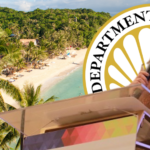We all know vacation feels good. But did you know it’s also good for you? Science is increasingly proving that taking time off is not just a luxury, but a necessity for our physical and mental health. For years, researchers have been exploring the benefits of vacations, looking beyond the “I-feel-chilled-out” factor.
And they’ve found that taking a break from the daily grind can positively impact everything from blood pressure to brainpower.
Here are 5 reasons why you need to prioritize a vacation, backed by scientific research:
1. Increase Mindfulness and Well-being:
“When we travel we are usually breaking our normal routine,” explains Richard Davidson, professor of psychology and psychiatry at the University of Wisconsin–Madison and founder of the Center for Healthy Minds. This disruption forces us to be more present, “to really wake up.”
Mindfulness, in turn, has been proven to reduce stress, increase compassion, resilience, and happiness.
2. Improve Heart Health:
Studies have shown a strong link between vacations and better heart health. One study, published in the American Journal of Epidemiology, found that women who took fewer than one vacation every six years were twice as likely to have a heart attack or coronary death than those who took a couple of breaks annually.
Another study found similar results for men, showing that those who took fewer vacations were at a higher risk of dying from coronary heart disease. Brooks Gump, professor of public health at Syracuse University, highlights that “there’s a good chance that vacation does reduce your risk of heart disease.” He emphasizes that further research is needed to understand the exact mechanisms at play.
3. Reduce Stress and Boost Resilience:
We all know vacations feel stress-free, and now science confirms it. Studies show that vacations reduce stress, which is known to negatively impact blood pressure, cholesterol levels, and overall health.
The same Syracuse University researchers who tracked metabolic syndrome found that the closer people were to their vacation start date, the less work pressures affected their heart rates.
4. Boost Creativity and Brainpower:
Relaxation is a proven creativity booster. “Neuroscience is so clear, through PET scans and MRIs, that the ‘aha’ moment comes when you’re in a relaxed state of mind,” says Brigid Schulte, author of “Overwhelmed: Work, Love and Play When No One Has the Time,” and director of the Better Life Lab at the think tank New America.
That’s why you have your best ideas in the shower or on a walk—or on vacation.
5. Lift Moods and Increase Life Satisfaction:
Vacation doesn’t just have the power to lift your mood; it can impact an entire country’s well-being. Swedish experts found a correlation between increased vacation time and reduced antidepressant consumption.
Schulte adds, “At the end of your life, you remember moments of connection… the times when it feels like you’re so present. Psychologists call it peak human experience—and it doesn’t happen in the office.”
Beyond the Science: Making Time for What Matters
While research proves the benefits of vacation, many of us struggle to take time off. “We’re one of the only advanced economies that does not guarantee paid leave,” says Schulte. And those who do have paid leave often don’t use it, fearing being seen as uncommitted to work or returning to a mountain of emails.
But remember, you cannot be productive 365 days a year, 12 hours a day. The brain needs a break to recharge and be more creative and effective. So, book that trip, take those days off, and allow yourself the time to reconnect with yourself, your loved ones, and the world around you. Your health, well-being, and even your career will thank you for it.







Leave a Reply